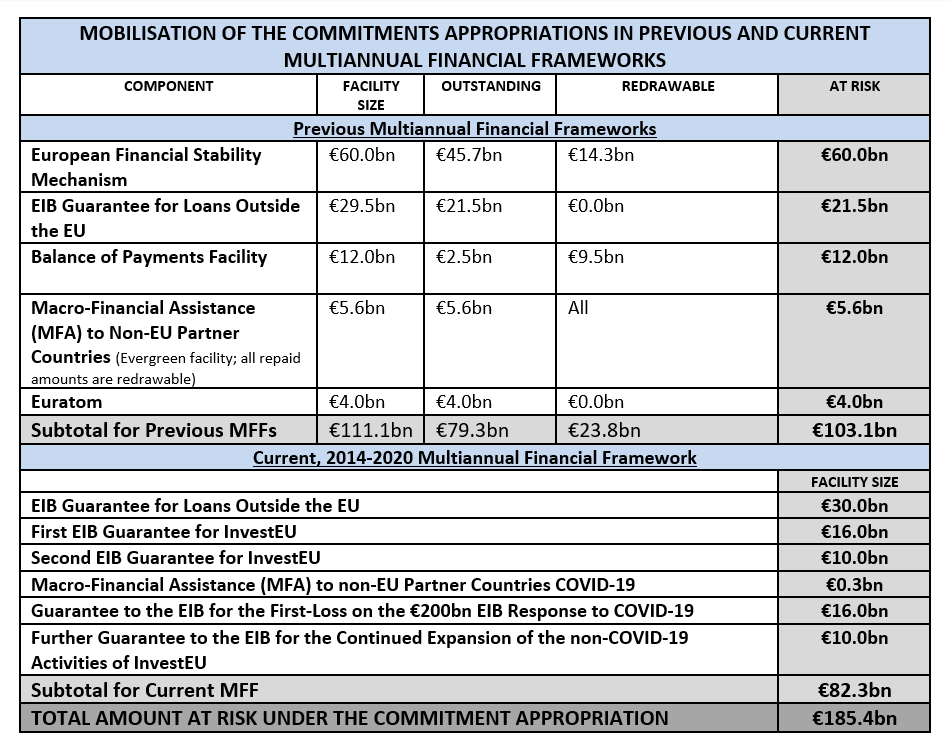New report sets out detailed blueprint for a sovereignty-compliant deal
Britain will not regain full national independence without replacing the “seriously flawed” Withdrawal Agreement (WA), according to a new report from a major pro-Brexit think-tank.
It warns that key elements of the agreement amount to a “poison pill” for Britain’s future relationship with the European Union and its future competitiveness and prosperity.
Unless they are replaced, the Government will fail to deliver on its pledge to “take back control” of the UK’s borders, laws, trade, and money when the country finally breaks with the 27-country bloc at the end of this year.
The report sets out a detailed blueprint for repairing the faults in the WA that is consistent with the UK regaining full national independence and safeguarding its interests during the final phase of negotiations with Brussels before the end of the Transition Period in December.
The report also reveals that the British public is in no doubt that Brexit must mean a full restoration of sovereignty.
By a margin of 49 per cent to 26 per cent, people in so-called battleground ‘Red Wall’ seats polled by Savanta ComRes for the study agreed with the statement: “Leaving the EU in 2020, rather than later, will mean that Britain recaptures the national independence it had before it joined the Common Market in 1973 sooner.”
This level of agreement rises to two thirds among ‘Red Wall’ residents who voted Labour in the 2017 general election then switched to the Conservatives in the 2019 election – and nearly three quarters of people who voted Conservative in both elections.
Major obstacles to a future relationship with the EU that respects UK sovereignty run to at least nine items and include the Northern Ireland Protocol covering trade between the UK, NI and the EU, ‘divorce’ payments from the UK to the EU and future liabilities to hand over more cash to Brussels, ongoing powers for the European Court of Justice over the UK, special legal privileges for EU citizens living in Britain and the threat that the UK could be forced to participate in ambitious EU defence and security arrangements.
The EU is also challenging the right of the UK to take back control of its fishing waters after Brexit.
Crucially, because the UK has been part of the EU’s expanding funding organisations over its nearly 50 years of membership, the country could face a huge new financial liability over and above the much disputed £39 billion divorce payment it has agreed to give Brussels on departure.
The report calculates that a combination of liabilities arising from British membership of the European Investment Bank, the European Investment Fund and the EU Budget could produce a demand from Brussels of an extra payment of €185 billion, rising to as much as €568 billion.

The report backs Boris Johnson in his determination to “get Brexit done” and to ensure that crunch negotiations over the terms of Britain’s future relationship with the EU torpedo its demands that Britain’s business and employment laws remain in lockstep with those formed in Brussels. It also endorses his refusal to accept European control of “State aid” rules on government support of domestic industries.
However, it warns that much more must be achieved in the talks with Brussels if the UK is to secure a “sovereignty compliant” final deal when the transition period is terminated at the end of December and the UK expects to regain the independence it compromised when it joined the then Common Market in 1973.
The report is from the Centre for Brexit Policy (CBP), a cross-party think-tank chaired by former Cabinet minister Owen Paterson.
John Longworth, Director-General of the CBP, said: “The British public repeatedly voted to “take back control” and to “get Brexit done”. But we are now in the fine print stage of our departure from the EU and close examination of the terms agreed by former Prime Minister Theresa May and only partially improved so far by Prime Minister Johnson reveals that we are a still long way from fully restoring our national independence.
“The EU wants to keep us in close orbit around it and to continue to exercise great sway over our constitution, courts, finance and industry, including via interference in Northern Ireland. We must ensure that our future relationship with the EU does not undermine our right to take our place on the world stage like other independent nations, free to cooperate with friendly countries but not to be controlled by them.”
In a foreword to the report, Professor Robert Tombs of Cambridge University says: “The EU is making demands that have no parallel in relationships between democratic (= sovereign) states. It is demanding an unequal relationship which invites indignant language about vassalage and colonial status…
“As Michel Barnier sees it (and he is certainly not just following his own inclinations), a post-Brexit Britain must slot into this outer circle [of a multi-speed Europe]: its laws must conform to EU laws; it must be an auxiliary, not a rival; its wealth and power must continue to be harnessed to the Continent.”
In a separate foreword, constitutional expert Sir Bill Cash MP says Britain’s forthcoming departure from the EU is a “watershed” moment in its long history.
“This is no less a constitutional revolution than in 1688. It gives back to the British people their self-government, freedom and their democracy accumulated over the last 400 years but temporarily interrupted in 1972 by the European Communities Act until the Withdrawal Agreement Act 2020. “
The report, Replacing the Withdrawal Agreement – How to Ensure Britain Takes Back Control on Exiting the Transition Period, highlights the elephant traps in the current Withdrawal Agreement and the accompanying Political Declaration. But it also charts a way forward for Britain as the talks with Brussels, led by chief negotiator David Frost, enter a final critical phase with the Prime Minister pressing for a conclusion, to include a free trade deal, by September.
It maps out a “sovereignty compliant” agreement in which current plans for an East-West border between Britain and Ireland would be replaced by a North-South border. A system of “mutual recognition” could be offered, to carry out customs and regulatory checks on the flow of goods between the Republic and Northern Ireland, ensuring no need whatever for a hard border on the island of Ireland.
As Nobel Prizewinner Lord Trimble points out in his foreword, “the Withdrawal Agreement clearly rips the Good Friday Agreement apart” by undermining the Principle of Consent, handing law-making power over Northern Ireland to the EU so that “there is no way in which the people affected by those decisions will even have a say in the making or application of them.” He highlights how important it is for the Government “to remove the unacceptable concessions made on the GFA” and adds that he is “delighted this paper shows how that can fairly be done.”
The only possible reason for rejecting this would be lack of trust in the UK, but the EU has already crossed that threshold in the existing WA.
Other proposals are put forward to deny the ECJ powers over British business and the rights of EU citizens in the UK, including a solution to the level playing field challenge from the EU. The Government is warned against striking agreements that could leave it liable for massive future payments to European funding organisations after the country leaves the EU.
The report insists that if the EU will not agree to a restoration of UK sovereignty then the UK should leave the EU without a deal at the end of the Transition Period on 31 December, trading with it on an Australia-style arrangement under World Trade Organisation rules, which already cover the majority of UK trade with the rest of the world.
Key points of the report:
- There are specific terms in the WA that amount to a ‘poison pill’ for the future relationship, giving power to the EU and encroaching on UK sovereignty, namely:
- The Northern Ireland Protocol
- EU citizens’ rights
- ‘Divorce payments’
- Future financial liabilities
- EU data protection laws
- EU Geographical Indications of Origin
- Provisions relating to UK sovereign bases and other issues
- Separately in the negotiations, the EU is demanding additional sovereignty renunciations – eg,
- Fishing rights
- The ‘Level Playing Field’
- The Political Declaration (‘PD’) invites the UK to participate in various defence and industry schemes that are not in the interest of the UK
Therefore, the UK must ensure that any agreement negotiated is ‘sovereignty compliant’ and that it prepares itself for the possibility that the EU ultimately will not come to such an agreement. This requires taking the following steps:
- Gaining a consensus within the UK Government on what are the threats to UK sovereignty within both the WA/PD and the negotiations at large and why they matter
- Defining how a ‘sovereignty compliant’ agreement should look
- Carefully devising a plan to evolve the WA into an acceptable agreement and skilfully explaining and justifying why the UK’s proposed agreement meets the EU’s objectives while simultaneously ensuring our future sovereignty
- Positioning the UK to benefit from whatever outcome is achieved
- Offering the EU a ‘sovereignty compliant’ deal that is acceptable to both sides
ENDS
For press enquiries please ring +44 (0) 20 3585 5290.
Click here to read the report in full.

